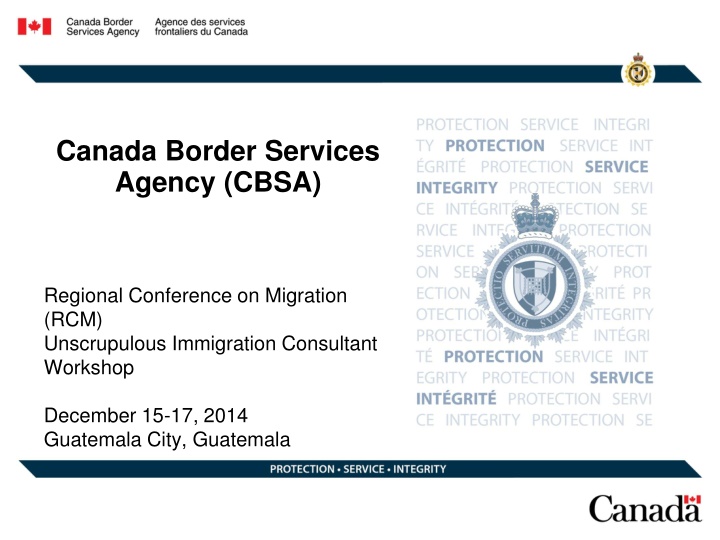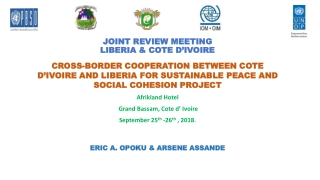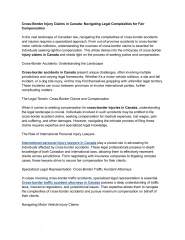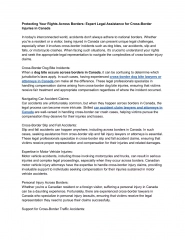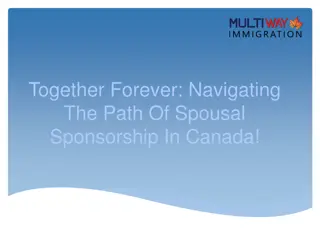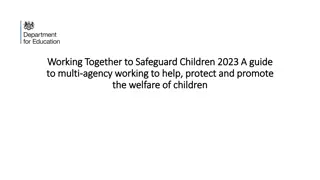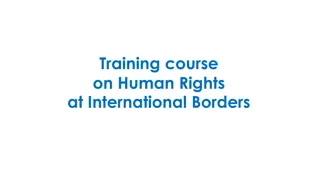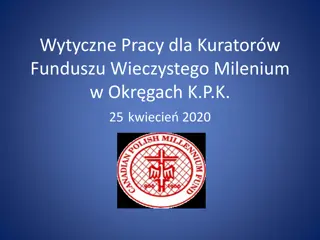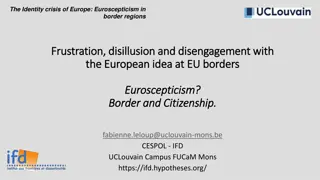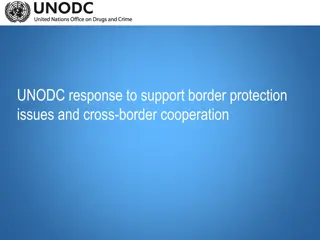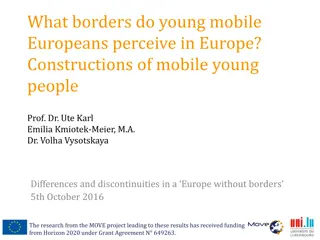Canada Border Services Agency: Safeguarding Canadian Borders and Security
Ensuring the security and prosperity of Canada, the Canada Border Services Agency manages the access of people and goods to and from the country. With a workforce of over 13,000 employees and a vast network of locations, CBSA addresses challenges such as immigration fraud, irregular migration, contraband trade, and national security threats through enforcement and intelligence initiatives.
Download Presentation

Please find below an Image/Link to download the presentation.
The content on the website is provided AS IS for your information and personal use only. It may not be sold, licensed, or shared on other websites without obtaining consent from the author.If you encounter any issues during the download, it is possible that the publisher has removed the file from their server.
You are allowed to download the files provided on this website for personal or commercial use, subject to the condition that they are used lawfully. All files are the property of their respective owners.
The content on the website is provided AS IS for your information and personal use only. It may not be sold, licensed, or shared on other websites without obtaining consent from the author.
E N D
Presentation Transcript
Canada Border Services Agency (CBSA) Regional Conference on Migration (RCM) Unscrupulous Immigration Consultant Workshop December 15-17, 2014 Guatemala City, Guatemala
The Canada Border Services Agency Ensures the security and prosperity of Canada by managing the access of people and goods to and from Canada 13,000 employees including over 7,200 uniformed CBSA officers 1,200 locations across Canada - 119 land-border crossings and 13 international airports 39 international locations
Immigration Fraud Historically, irregular migration to Canada was largely based on migrants exploiting our generous refugee processes. Facilitators were often involved in obtaining false documents for their clients to facilitate their travel and in providing false information in support of their refugee claims. As the security of travel documents has increased and airlines and border authorities scrutinize passports more carefully, we have seen a global decline in the detection of fraudulent travel documents; however, facilitators are now targeting legitimate processes (i.e. obtaining false identity documents to support visa applications for their clients, providing false job offers to support temporary or permanent residents entry). The flow of migrants across borders is controlled increasingly by criminal networks. Due to more restrictive immigration policies in destination countries and improved technology to monitor border crossings, willing illegal migrants rely increasingly on the help of organized people smugglers.
CBSA's Enforcement and Intelligence Capacity Investigation and enforcement under the Customs Act (CA) and the Immigration and Refugee Protection Act (IRPA) Intelligence (collection and analysis of information in support of IRPA and CA administration and enforcement) Inland Enforcement (arrest, detention, removal under IRPA regulatory provisions) Criminal Investigations (investigation and criminal prosecution under IRPA and the CA) 4
CBSA's Enforcement and Intelligence Priorities Contraband Trade Fraud, Drugs, Firearms, Currency, Tobacco Immigration Fraud Residence Fraud, Consultant Fraud, Marriage of Convenience, Welfare/Benefit Fraud, Employment Fraud Irregular Migration Smuggling, Trafficking, Removals National Security Terrorism, Inadmissibility, Counter-proliferation Activities are conducted across the continuum of pre-border, at the border and in country 5
IRPA Consultant Offences There are two sections of the IRPA that primarily address illegal consultant offences: 1. Counselling misrepresentation: Every person who knowingly counsels, induces, aids or abets or attempts to counsel, induce, aid or abet any person to directly or indirectly misrepresent or withhold material facts relating to a relevant matter that induces or could induce an error in the administration of this Act is guilty of an offence. Indictment = <$100K and/or < 5 years Summary = <$50K and/or < 2 years 2. Representation or advice for consideration: No person shall knowingly, directly or indirectly, represent or advise a person for consideration or offer to do so in connection with a proceeding or application under this Act. Indictment = <$100K and/or < 2 years Summary = <$20K and/or < 6 months
Criminal Investigative Process Investigations of consultant fraud are complex, lengthy and resource-intensive. Often initiated as a result of a referral of information from intelligence, CIC, members of the public or the Immigration Consultants of Canada Regulatory Council (ICCRC). Collection of evidence includes: Execution of search warrants Interviews of multiple individuals Surveillance operations to obtain evidence Priorities are established based on the urgency of the case, availability of evidence, and the public s interest to proceed, including considering aggravating factors. Cases are then referred to the Public Prosecution Service of Canada (PPSC) for prosecution. The duration of a case from investigation to prosecution can take from two to five years.
Consultant Fraud Investigations Statistics January 2008 to November 2014 Referrals Received (all sources) 869 Cases Opened 203 Cased Closed (with no charges laid) 100 Charges Laid 28 16 1 11 Guilty Convictions Charges Withdrawn Cases still before the Courts Cases still under Investigation 75 8
Challenges of prosecuting consultant offences Referrals may not contain sufficient information to initiate an investigation; a higher test of evidence is required in criminal proceedings. Evidence on application files may have been destroyed by the time the investigation is initiated. Migrants are reluctant to report offences for fear of incriminating themselves or for fear that they will be removed from Canada. Consultants operating outside of Canada - Canadian legislation cannot be applied and the activity may not be illegal in the other country. Clients making false accusations due to negative application results.
Success Stories Immigration Fraud On October 15, 2014, Mr. Xun Wang, the owner of two unlicensed immigration consulting businesses in Metro Vancouver, was charged with multiple counts of fraud. The CBSA has confirmed that Mr. Wang was charged with 6 immigration and 4 criminal code offences in relation to 165 cases. Charges were laid after a lengthy investigation. Mr. Wang advised foreign nationals to provide misleading or false statements on their permanent resident card renewal applications in order to help his clients maintain fictitious permanent resident status and obtain Canadian citizenship Mr. Wang was also charged with 1 count of tax evasion and 2 counts of fraudulently obtaining refunds or credits following an independent probe by the Canada Revenue Agency.
Success Stories Counselling Misrepresentation On December 2, 2014, at the Superior Court of Justice, Ms. Wei REN, also known as Christine Molson, pleaded guilty to 5 counts of counselling misrepresentation under Section 126 of IRPA. The sentencing hearing is scheduled for March 13, 2015, at which time the prosecution is seeking a 2.5 year term of imprisonment. Marrriage of Convenience On January 16, 2014, Mr. Amadou Niang was convicted and fined $42,000 and sentenced to 2 years less a day to be served in the community. Mr. Niang was charged with 42 related charges in March 2010. Police allege that Mr. Niang, a bogus immigration consultant, was the mastermind behind a marriage of convenience scheme which potentially involved 630 people and 315 suspicious marriages.
Going Forward Strengthen partnerships domestic and international Increase the quality of referrals referral guidelines to assist partners Ensure intelligence focus on immigration fraud Our ability to identify and take action against immigration fraud is essential to meeting our public safety and national security mandate as well as ensuring public trust in our immigration system.
